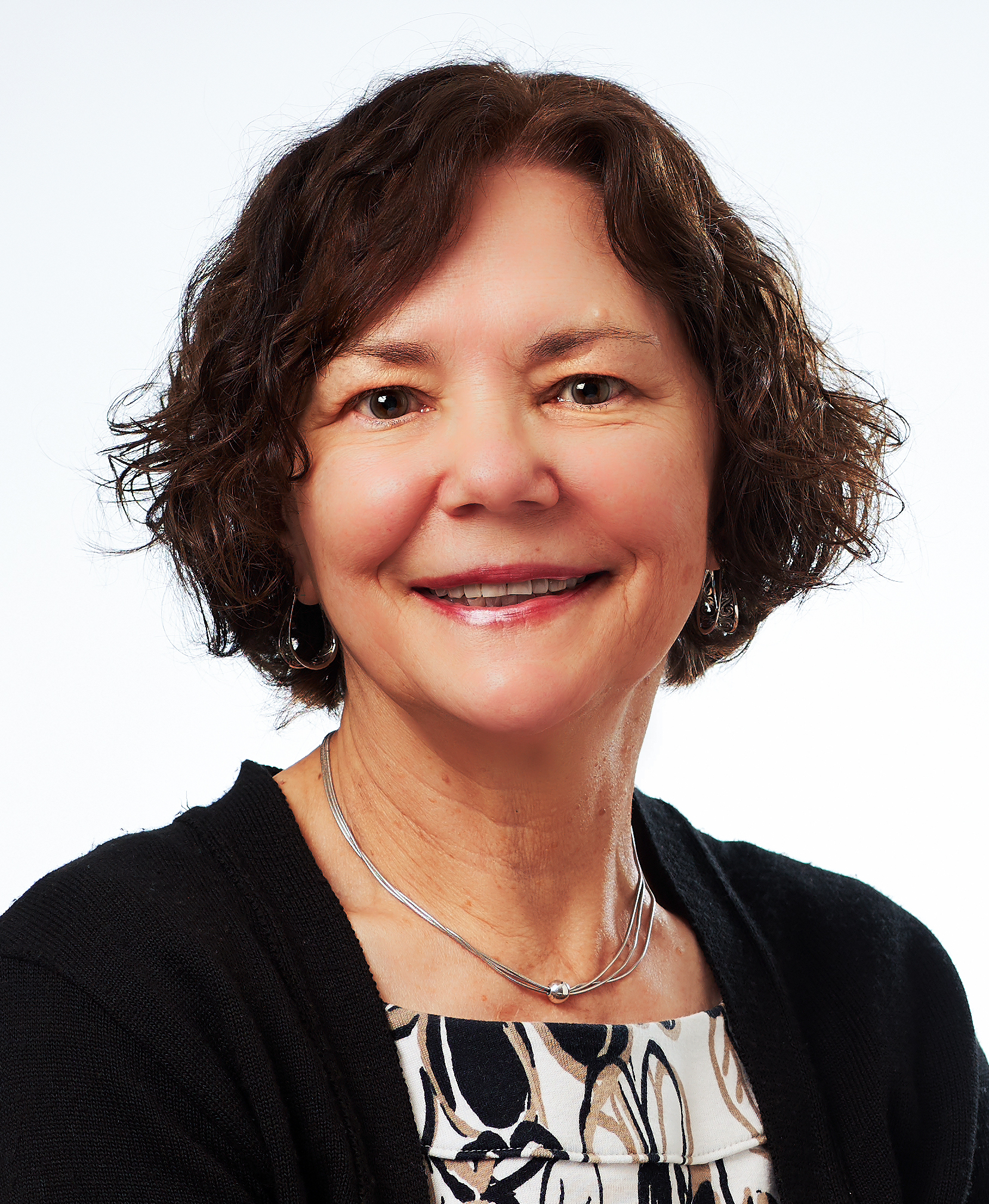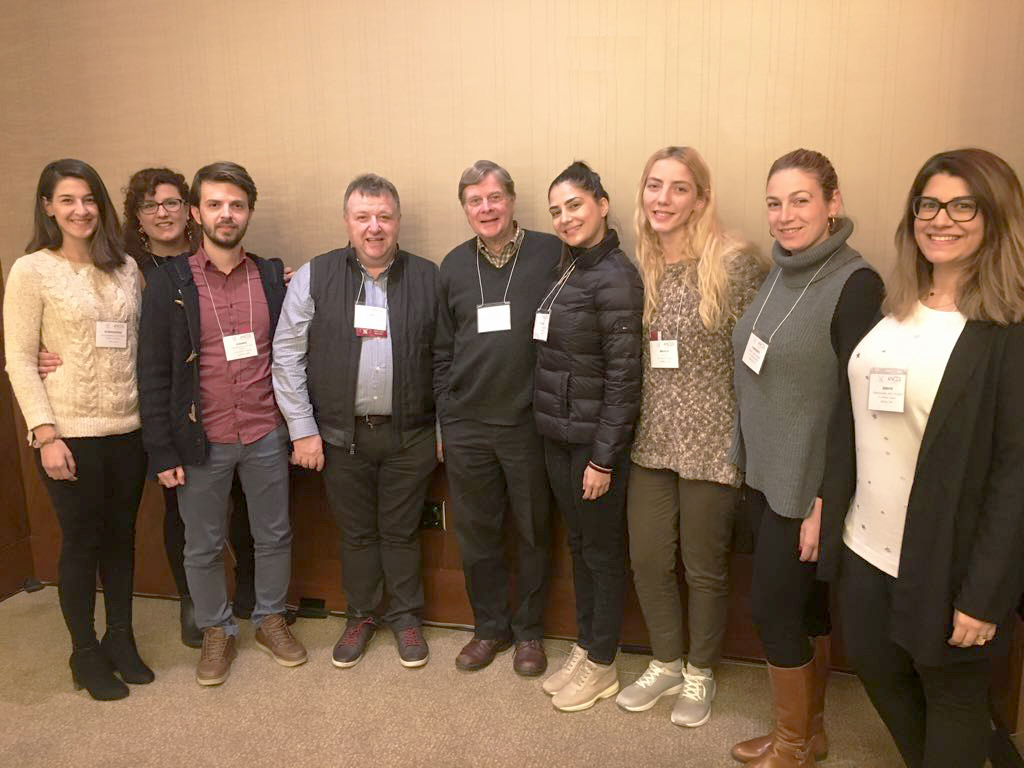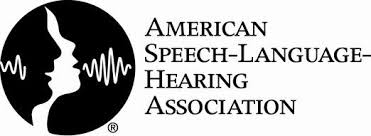|
In This Issue...
- President's Message
- Member Spotlight: Leora Cherney, PhD, BC-ANCDS
- 2018 International Student Feature
- Committee Updates
- 2019 Honors of the Academy Nominations
- ANCDS Student Fellow Program
- ASHA Announcements
- Book Review: My Stroke of Insight
- Member Accomplishments
ANCDS Board Certification
Why become Board Certified?
- Recognizes your advanced clinical knowledge and skills
- Enhances your confidence in your clinical knowledge and skills
- Enhances consumer and referral source confidence in the care you can provide
- Encourages professional growth through the continuing education required for maintenance of board certification
- Provides a respected credential to support professional advancement
Click here to learn more about the application and certification process.
Upcoming Live Webinars
Apr. 22, 2019: Reading Comprehension Treatments for Aphasia: An Update from the ANCDS Writing Committee
Jun. 24, 2019: Striving for Independence: A Coaching Model of Support for Adults with TBI
Oct. 17, 2019: Documenting Functional Change in Complex Communicative Environments
View the full webinar schedule!
New On Demand CE Offerings
Nov. 2018: Advances in Neurological Rehabilitation for Aphasia and Motor Speech Disorders (2018 Annual Meeting Recordings)
View all On Demand CE here!
Upcoming Conferences
May. 28-Jun. 1, 2019: 49th Annual Clinical Aphasiology Conference (Whitefish, Montana)
Jun. 10-11, 2019: 3rd International Conference on Cognitive Stimulation Therapy (St. Louis, Missouri)
ANCDS Job Board
Looking for a new career opportunity? Check out our free job board!
Members, want to post a free ad for an open position at your company? Submit this form!
Welcome new members!
Full Members
Liz Boocock
Julie Hart, MS, CCC-SLP
Anna Pucilowski
Kelly Rutherford
Marguerite Torrenga, MA, CCC-SLP
Theresa Urueta, MA, CCC-SLP, CBIS
Students
Anna Challet
Kimberly Fiddler
Karin Nystrom
ANCDS Board/Officers
Linda Shuster, PhD, CCC-SLP
President
Kathleen Youse, PhD, CCC-SLP, BC-ANCDS
President-Elect
JoAnn Silkes, PhD
Secretary
Yvonne Rogalski, PhD, CCC-SLP
Treasurer
Julie Wambaugh, PhD
Immediate Past President
Alaina Davis, PhD, CCC-SLP
Executive Board Member
Gerasimos Fergadiotis, PhD, CCC-SLP
Executive Board Member
Tepanta Fossett, PhD
Executive Board Member
Katy O'Brien, PhD, CCC-SLP
Executive Board Member
Stacie Raymer, PhD
ANCDS Archivist
Sheryle Hazard, CAE
Executive Director
Contact Us
ANCDS
2345 Rice Street, Suite 220
St. Paul, MN 55113
Online: www.ancds.org
Email: [email protected]
Phone: 651-925-5528
Fax: 651-317-8048
Have feedback or suggestions for the newsletter? Contact us here!
|
President's Message
Greetings ANCDS members!
I hope that your spring is off to a good start. There are many exciting efforts going on within the organization, but I want to use my column to update you on one in particular. It was discussed briefly at the Business Meeting in November, but I know that not all of you were able to attend that meeting.
In late 2017, then-President Richard Peach was contacted by the VA regarding whether we would be interested in partnering with them to develop and accredit a VA Residency Program in speech-language pathology. In 2018, after further discussions that included representatives from the VA, President Julie Wambaugh, and myself (as President-Elect), the Executive Board voted to approve the formation of an Ad Hoc Committee for VA SLP Residency Programs to study the issue in more detail. The Committee was comprised of Richard Peach, who agreed to chair the group, Heather Clark, Donald MacLellan, Malcolm McNeil, Janet Patterson, Julie Wambaugh, and Kathy Yorkston.
The Committee met several times over late summer and fall 2018, and they completed their report in early 2019. It was shared with the Executive Board in early February. The Ad Hoc Committee's recommendation was to pursue the development of a residency program in SLP (not including dysphagia). The benefits that the Committee identified included the opportunity to grow the membership, including the number of Board Certified members, an increase in the visibility of ANCDS, and a unique opportunity to advance our mission of enhancing the communicative lives of people affected by neurologic disorders.
After reading the report and discussing it at length during the February Executive Board meeting, the Board voted unanimously to support the Ad Hoc Committee's recommendation. (Continue reading)
Sincerely,

Linda Shuster, Ph.D., CCC-SLP
2019 ANCDS President
Member Spotlight: Leora Cherney, PhD, BC-ANCDS
In each newsletter, we feature an ANCDS member. This quarter we're talking with Leora Cherney, PhD, BC-ANCDS, Scientific Chair at the Think & Speak Lab in Chicago, Illinois. Leora was the recipient of the 2018 Honors of the Academy award.
ANCDS: What roles have you held within ANCDS?
Leora Cherney (LC): I've been a long-standing member of ANCDS, joining close to when the organization started, and I have held Board Certification since 1994. I've served three terms on the Executive Board. The first time was a double term as secretary from 1996-1998, and then more recently I served as a Member-At-Large in 2015-2016. I served on the Certification Board for several years and was Chair of that Board in 2005. I've also served at various times on the Honors Committee, the Nominating Committee, and the Meetings Committee.
ANCDS: What are some of the most important lessons you have learned in your career?
LC: Hmm. This is a good question. There are so many, and I continue to learn from my successes and failures. In no particular order, maybe I can list a few:
Everyone who crosses your path has something to teach you. Many people have crossed my path, and I've learned from all of them. I've collaborated with them, and these collaborations have enriched me both personally and professionally.
It takes hard work to be successful. It is important not to be afraid of hard work. If one enjoys one's work and is passionate about it, then it doesn't necessarily feel like hard work. Also, there is no such thing as a work-life balance, just different priorities at different times! (Continue reading)
2018 International Student Feature

By Ilias Papathanasiou, PhD, FRCSLT (UK), FASHA (USA)
Professor, Department of Speech and Language Therapy
Technological Educational Institute (TEI) Of Western Greece
Patras, Greece
Back in 1996, I was introduced to ANCDS as a young PhD student by Dr. Terry Wertz. He spoke to me about how important it was for me in order to develop as a scholar and a clinician to be part of this group. I followed his suggestions, and I value him as my mentor in my professional career. I attended my first ANCDS meeting in Boston in 1997. I was thrilled in this first meeting to be in the same room with all these people whose work I had been reading, and I learned so much from the fascinating discussions and interactions. Thank you to Dr. Wertz - I still value today this important introduction, which has played an important role in shaping my career.
After my first meeting, I returned to the scientific meeting almost every year. I have met great people, learned so much, made friends, and through the years it was my reference point for meeting people in the area of acquired communication disorders. I became a member, and I was among the first of the international members of the Academy. As the years passed and my career evolved in the academic world, I have always spoken to my students about my experiences attending the meetings and being part of the Academy. I have used its resources in my teaching and always introduce it to my students in my first class of the semester as a resource where they can find information. (Continue reading)
Highlights from the Student Attendees:
"We got to meet so many SLPs from around the world and most importantly some of the 'legends' of our field. Getting to know the people behind the books and papers that we read, and seeing how approachable and kind they are, was truly amazing."
"I think I speak on behalf of all of my classmates in saying that the whole trip was an eye-opening experience. ANCDS set the tone for the following days and gave us an opportunity to meet interesting people and to get to know how SLPs work in the US. Also, seeing what ANCDS has contributed made us want to help out too! We will definitely be back in the coming years."
"Every single person that we met was generous and kind, from the ANCDS administration to the attendees. Everyone answered our questions truthfully and seemed as excited to meet us as we them. Meeting people like Julie Wambaugh, Jerry Hoepner, Heather Clark, and Joe Duffy, and seeing how wonderful and humble they were, gave us a new perspective. It was an overall amazing experience and hopefully we'll be back again next year!"
Committee Updates
Evidence-Based Clinical Research Committee:
2018 was a busy year for the Evidence-Based Clinical Research Committee, as no doubt 2019 will prove to be as well! New writing chairs Edwin Maas (Apraxia of Speech; AOS), Peter Meulenbroek (Traumatic Brain Injury; TBI), and Jamie Mayer, (Aphasia), joined Laura Murray (Committee Chair) and writing chairs, Maya Henry (Progressive Neurogenic Communication Disorders), Deanna Britton (Dysarthria), and Peggy Lehman-Blake (Right Hemisphere Disorders) on the committee. (Continue reading)
Now Accepting 2019 Honors of the Academy Nominations!
The Honors Committee welcomes nominations of current members of ANCDS for the 2019 Honors of the Academy.
Nominees should be members who have shown outstanding contributions to research, teaching, treatment, and/or service in the area of neurologic communication disorders.
Nominations are due by April 30, 2019.
To see who has received the Honors in the past, please visit www.ancds.org/honors-of-the-ancds.
2018 Annual Meeting Silver Sponsor

ANCDS does not endorse specific companies or products.
ANCDS Student Fellow Program
The ANCDS Membership Committee is pleased to announce that awards will be offered for twelve (12) students to attend the ANCDS 2019 Conference in Orlando, FL. Start-up funds for the original awards offered in 2011 were contributed by Dr. Lawrence Shriberg, keynote speaker for the 2010 ANCDS Conference, who donated his honorarium back to the ANCDS. Funds to sustain the program continue to be provided by the ANCDS Executive Board and through donations from ANCDS members.
The 2019 competition is open to individuals who meet the following criteria:
- Full-time speech-language pathology Master's and Doctoral students enrolled in graduate-level courses during the Spring 2019 semester
- Full-time students specializing in clinical neurologically-based communication disorders and sciences (e.g., neuroscience, linguitstics) enrolled in graduate-level courses during the Spring 2019 semester
Students do not need to be members of the ANCDS to apply for the ANCDS Fellowship Award. Students who are not members of the ANCDS are encouraged to apply.
NOTE: Students who have previously received an ANCDS Fellowship Award (either as a Master's or Doctoral student) are not eligible to apply.
The 2019 ANCDS Fellowship Awards include the following:
- a one-year membership beginning in January 2020,
- free registration for attendance at the 2019 ANCDS Conference,
- an invitation to attend a Fellow-Mentor Networking Breakfast the morning of the 2019 ANCDS Conference,
- a complimentary ticket for the 2019 ANCDS Conference Luncheon, and
- an invitation to attend a Student Fellowship Social Event following the 2019 ANCDS Conference.
The application deadline is Monday, June 3, 2019 at 5:00pm (EST). Applications submitted after the deadline will not be accepted. Applicants will receive an email confirming successful submission. Students will receive notification about the awards by Friday, July 19, 2019 at 5:00pm (EST).
To view a list of past student fellows and read about their experiences at the conference, please visit https://www.ancds.org/past-student-fellows.

ASHA Announcements
Practice
Interprofessional Education/Interprofessional Practice (IPE/IPP)
*NEW* Did you know that the SIG Perspectives is now a Scholarly Review Journal? To learn about article submission, and opportunities to get involved, see the blog post on the ASHA Journals Academy. An inaugural special topics forum, "Putting Research Into Practice," is featured in the February issue.
ASHA certification standards to change in 2020
Research & Mentoring Opportunities
Clinicians and Researchers Collaborating (CLARC): The CLARC program is an online tool designed to enable clinicians and researchers to identify each other for the purpose of forming research collaborations.
ASHFoundation Research Grants: Upcoming Deadline April 17, 2019: Submission deadline for the ASHFoundation Clinical Research Grant, New Century Scholars Research Grant, and New Investigators Research Grant.
ASHFoundation's Scholarships and Student Research Grants: Students can now apply for the following ASHFoundation scholarships and student research grants:
- Deadline: May 8 - New Century Scholars Doctoral Scholarship.
- Deadline: May 15 - Graduate Student Scholarships (including International Scholarship, Minority Scholarship and NSSLHA Scholarship), Student Research Grant in Audiology, and Student Research Grant in Early Childhood Language Development.
The ASHA Minority Student Leadership Program was created to cultivate leadership and engagement and is available to racial/ethnic minority students who are undergraduate seniors, master's students, doctor of audiology (AuD) students, and doctor of philosophy (PhD) students and enrolled in communication sciences and disorders (CSD) programs. Encourage your students to apply for the MSLP award by April 29, 2019.
Upcoming deadlines for ASHA research career development opportunities:
Research highlights at the ASHA Convention include several research career development sessions, the Research Roundtables, and the Research Symposium, which will focus on Specific Language Impairment in 2019.
Conferences & Continuing Education
Preceptors in the Nexus: Interprofessional Learning in Practice, May 2-3, 2019, Minneapolis, MN
Difficult Conversations in Healthcare: Teaching and Practice in an Interprofessional World: May 11 and June 15, 2019, Boston, MA
2019 Health Care Connect: July 19-21, 2019, Chicago, IL
12th Annual Midwest Interprofessional Practice, Education, and Research Conference: September 19-20, 2019, Grand Rapids, MI
Volunteer Opportunities
Apply by May 31 for CAA Vacancies: Applications are now being accepted for volunteer positions on the Council on Academic Accreditation in Audiology and Speech-Language Pathology (CAA) and the CAA Nominating Committee. The terms begin January 1, 2020. Visit the website to read the full call for applications, including descriptions of the practitioner and academic member vacancies, procedures, links to online application sites, and other details. All completed applications must be submitted online by May 31, 2019.
ASHA Convention student volunteers: Student volunteers assist in various roles during the ASHA Convention. As a student volunteer, you/your student will have the opportunity to meet and network with your peers and ASHA members.
Book Review: My Stroke of Insight: A Brain Scientist's Personal Journey
Reviewed by Ellie Howton
Graduate Student, Communication Sciences and Disorders, Minnesota State University, Mankato
Jill Bolte Taylor was a neuroscientist with a love for the brain and a desire to know more about the brain. An unlikely experiment occurred when Bolte Taylor suffered a hemorrhagic stroke due to arteriovenous malformation when she was alone at home. Many people have seen Bolte Taylor's famous TED Talk titled "My Stroke of Insight," and her book continues with the same subject matter. If you are a fan of "My Stroke of Insight," Bolte Taylor's book My Stroke of Insight: A Brain Scientist's Personal Journey is highly recommended for a detailed look into Bolte Taylor's "stroke of insight."
Bolte Taylor writes in her introduction about the organization of her book. Chapter One: Jill's Pre-Stroke Life is about her life and educational history, as she talks passionately about her education and research. Readers learn about the genesis of her interest in the brain as she speaks fondly about her brother, who was diagnosed with schizophrenia at age 33. Bolte Taylor encourages the reader to read the science and anatomy-based chapters in the beginning to better understand her stroke story. Speech-language pathologists and communication disorders students will enjoy this review of information that takes them back to their anatomy, physiology, and neurology classes. Her passion for helping others through her research, studies, and teaching is apparent throughout the chapters. (Continue reading)
Member Accomplishments
Peggy Blake and Melissa Johnson created a website, www.righthemisphere.org, with info about RHD cognitive-communication disorders that can be used to educate clients, families, students and clinicians. A free downloadable flyer with a summary of common deficits is available on the resources page of the website.
Michelle Bourgeois and Jennifer Brush were awarded an ASHFoundation Researcher-Clinician Collaborative Grant for the project, "Intergenerational Montessori Day Program for Persons with Memory Concerns." They hope to improve the engagement of persons with memory concerns in person-centered activities with the children, to improve the perceptions of the children about senior adults, and to improve the knowledge and skills of graduate SLP students about intergenerational and person-centered treatment approaches.
Douglas, N.F. & Burshnic, V.L. (2019) Implementation science: Tackling the research to practice gap in communication sciences and disorders. Perspectives of the ASHA Special Interest Groups. 1(1), 1-5. DOI: 10.1044/2018_PERS-ST-2018-0000.
The ANCDS TBI Writing Committee (Lindsey Byom, Rik Lemoncello, Sheila MacDonald, Peter Meulenbroek [Committee Chair], Bryan Ness, Therese O'Neil-Pirozzi, and McKay Moore Sohlberg) recently had two manuscripts accepted for publication in the International Journal of Speech-Language Pathology:
- Social Communication following Traumatic Brain Injury I: State-of-the-Art Review of Assessment Tools
- Social Communication following Traumatic Brain Injury II: Identifying Effective Treatment Ingredients
Leora Cherney was presented with the Illinois Clinical Achievement Award at the Annual Convention of the Illinois Speech Language Hearing Association on February 9, 2019. Dr. Cherney was honored for the specific work she has done in developing and promoting the Intensive Comprehensive Aphasia Program (ICAP) in Illinois, the USA, and internationally.
Diehl, S., & Wallace, S.E. (2018). Modified multimodal communication treatment for individuals with traumatic brain injury. Augmentative and Alternative Communication, 34(4), 323-334.
Neumann D, Zupan B & Eberle RD. (2019). Social cognition after TBI. In JM Silver, TW McAllister and DB Arciniegas (Eds.), Textbook of Traumatic Brain Injury - 3rd Edition. American Psychiatric Publishing, Inc., Arlington, VA.
Anjum, J., & Hallowell, B. (2019). Validity of an eyetracking method for capturing auditory-visual cross-format semantic priming. Journal of Clinical and Experimental Neuropsychology. https://doi.org/10.1080/13803395.2019.1567692.
Helm-Estabrooks N. (2018) Boston Diagnostic Aphasia Examination. In: Kreutzer J., DeLuca J., Caplan B. (eds) Encyclopedia of Clinical Neuropsychology. Springer, Chamc.
Helm-Estabrooks, N. (2018). Cognitive Linguistic Quick Test. In: Kreutzer J., DeLuca J., Caplan B. (eds) Encyclopedia of Clinical Neuropsychology. Springer, Chamc.
Hilari K., Behn N., Moss B., Northcott S., Marshall J., Simpson A., Thomas S., McVicker S., Flood C., Jofre-Bonnet M., Goldsmith K. (2019). Adjustment with aphasia after stroke: study protocol for a pilot feasibility randomised controlled trial for SUpporting wellbeing through PEeR Befriending (SUPERB). Pilot and feasibility Studies, 5:14, https://doi.org/10.1186/s40814-019-0397-6.
The Center for Translation of Rehabilitation Engineering Advances and Technology (TREAT) awarded Nadine Martin and her lab a grant for $15,000 to develop the technology to support an online version of the Temple Assessment of Language and Short-term memory in Aphasia (TALSA).
Off, Catherine A., Griffin, Jenna R., Murray, Kirsten, W., and Milman, Lisa (2019). Interprofessional caregiver education, training, and wellness in the context of a cohort model for aphasia rehabilitation, Topics in Language Disorders, 39(1), 5-28.
Off, Catherine A. & Yorkston, Kathryn (2019). Issue Editor Foreword: Expanding the envelope of care: Redefining the patient as the patient-family caregiver unit. Topics in Language Disorders, 39(1), 3-4.
Efstratiadou E., Papathanasiou I., Holland R., Varlokosta S., Hilari K. (2019) Efficacy of Elaborated Semantic Features Analysis in Aphasia: a quasi-randomised controlled trial. Aphasiology https://doi.org/10.1080/02687038.2019.1571558.
Jaimie Payne presented a session entitled "Speech, Language, Cognitive, and Swallowing Rehabilitation in Patients With Brain Tumor" at ASHA's first-ever online conference, Cancer Care: Enhancing Communication, Swallowing, and Quality of Life.
Roth, C.R., Helm-Estabrooks, N. (2018) Boston Naming Test. In: Kreutzer J., DeLuca J., Caplan B. (eds) Encyclopedia of Clinical Neuropsychology. Springer, Chamc.
Strong K. and Lake, A. (2018). Steven: A Simulated Case Study in Home and Community Based Traumatic Brain Injury. SimuCase. www.simucase.com/casestudies
Travis Threats has been selected as a Distinguished Scholar and Fellow in the National Academies of Practice. Travis will be inducted at the conference in March 2019 in Washington, D.C.
Ramani Voleti was awarded the 2019 New York State Speech Language and Hearing Association's (NYSSLHA) Distinguished Clinician Award for her vast and impressive work in the profession of speech and language pathology. Recipients of this award are usually people who have demonstrated outstanding innovative clinical care to communicatively impaired individuals on a continuing basis. Ramani will receive the award on May 3, 2019 at the NYSSLHA annual convention in Albany, NY.
Wallace, S.E., Donoso Brown, E.V., Saylor, A., & Lapp, E. (2018). Participants' perceptions of an aphasia-friendly occupational therapy home program. Topics in Stroke Rehabilitation, 25(8), 599-609.
|